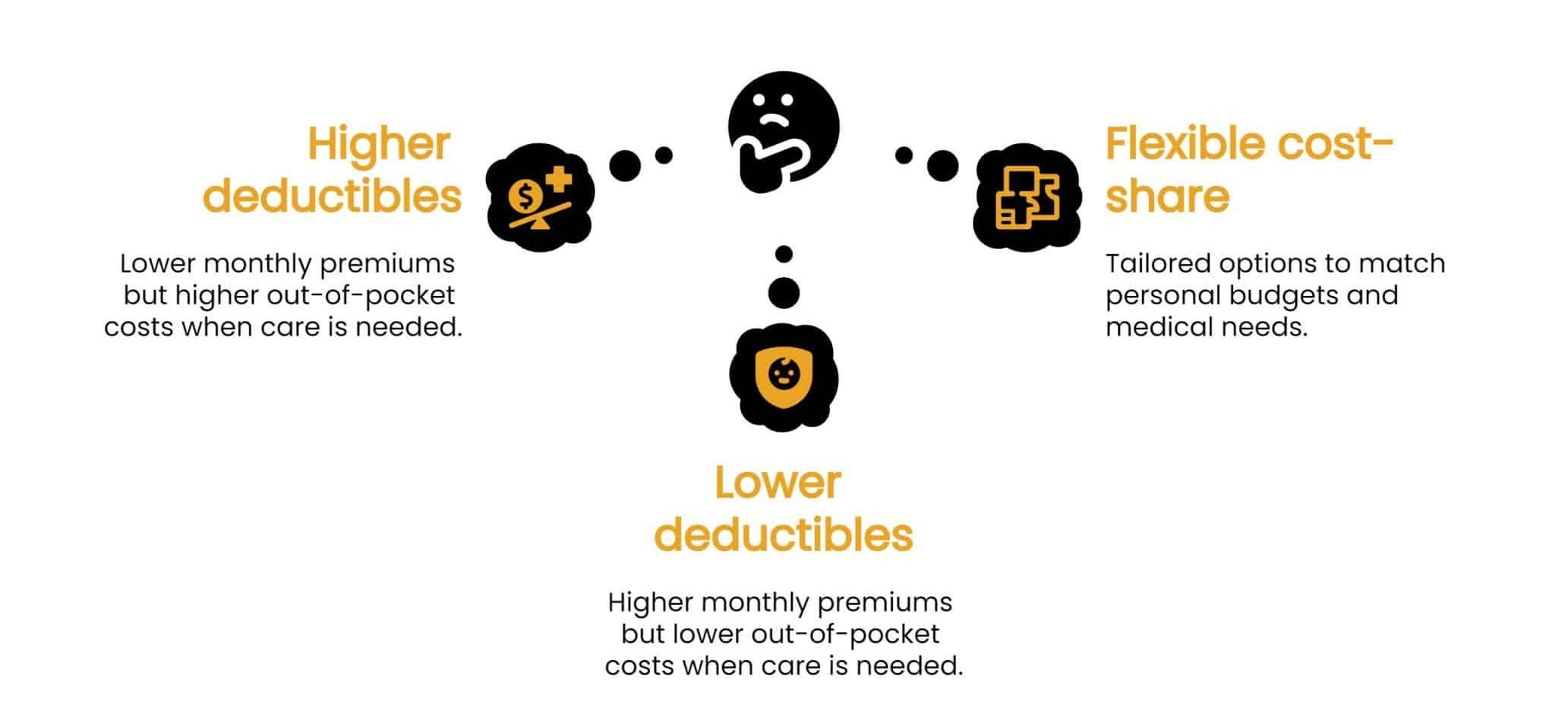

The Thaiger key takeaways
- Being uninsured or relying solely on travel insurance leaves expats exposed to high medical costs in Thailand.
- Ignoring coverage limits, exclusions, waiting periods, and network restrictions can create unexpected financial burdens.
- Understanding deductibles, copayments, and flexible payment options ensures better control over healthcare expenses and peace of mind
Living in Thailand as an expat means getting the right health insurance is important. Private hospitals offer excellent care, but treatment costs can be very high if something serious happens. Having insurance helps protect your finances and gives you peace of mind when you need medical help. It is also worth noting that some Thai visas require health insurance, so it is not only useful but sometimes necessary. With the right plan, you can focus on enjoying your life in Thailand without worrying about unexpected medical bills.
Mistakes expats make when choosing health insurance in Thailand
| Section (Click to jump) | Summary |
|---|---|
| Being completely uninsured | Without health insurance in Thailand, medical costs can quickly escalate, from doctor visits to surgeries, causing financial strain. |
| Confusing travel insurance with health insurance | Travel insurance covers emergencies only; long-term care and chronic conditions require proper health insurance for ongoing protection. |
| Underestimating coverage limits | Low coverage plans can leave expats liable for high hospital bills; higher annual limits ensure financial protection for serious treatments. |
| Overlooking policy exclusions and waiting periods | Policies often exclude pre-existing conditions, maternity, and certain treatments; waiting periods can delay coverage and cause unexpected costs. |
| Ignoring network restrictions and hospital choices | Visiting hospitals outside a policy’s network can lead to denied claims; direct billing and a broad hospital network prevent unexpected expenses. |
| Neglecting cost shares and deductibles | Monthly premiums don’t reflect all costs; understanding deductibles, copayments, and coinsurance is key to controlling healthcare spending. |
Being completely uninsured

Being completely uninsured in Thailand can be risky. While private hospitals offer excellent care, the costs can add up fast. A basic doctor’s visit at a private hospital is usually 800 to 1,500 Thai baht (about US$23 to 44). Bigger treatments, such as surgery, can cost thousands or even tens of thousands of dollars. Without insurance, these bills can quickly drain your savings and create stress during emergencies.
Health insurance makes a big difference. Cigna offers plans designed for expats in Thailand, giving both financial protection and easy access to private hospitals.
With Cigna, you get:
- Wide coverage in Thailand and abroad
- Direct billing at partner hospitals, so you don’t pay upfront
- Support in emergencies and ongoing treatments
This means expats can avoid the heavy cost of being uninsured and live in Thailand with peace of mind.
Confusing travel insurance with health insurance

Many expats in Thailand make the mistake of depending only on travel insurance, thinking it is enough for their healthcare. Travel insurance is mainly for short trips and usually covers emergencies like accidents or sudden illness. It does not cover long-term needs such as routine check-ups, treatment for chronic conditions, or regular outpatient care. For expats living in Thailand, this gap can lead to high medical bills when non-emergency care is needed.
Health insurance, on the other hand, is designed for long-term living. It gives broader coverage and makes sure you can access quality care without worrying about costs.
With comprehensive health insurance, expats can get:
- Regular doctor visits and preventive care
- Chronic condition treatment and ongoing care
- Emergency services and hospital coverage
- Direct billing with hospitals to avoid paying upfront
Having proper health insurance ensures financial protection and peace of mind, making life in Thailand safer and less stressful.
Underestimating coverage limits

Choosing health insurance with low coverage limits may look cheaper at first, but it can be very risky. If you face a serious illness or need surgery, costs in Thailand’s private hospitals can rise fast. A long hospital stay or major operation can reach millions of Thai baht, and once your policy limit is used up, you will need to pay the rest yourself. Many expats underestimate this risk when picking a plan with low limits.
For better protection, it is safer to choose insurance with higher annual coverage. Cigna’s plans give expats stronger support, starting with annual benefit limits of up to US$1,000,000. This helps cover both routine treatments and serious medical care.
With Cigna, expats benefit from:
- High annual limits to cover costly hospital stays and surgeries
- Financial protection for emergencies and long treatments
- Peace of mind knowing that big bills are less likely to fall on you
This kind of coverage allows expats to feel secure and focus on enjoying life in Thailand without worrying about unexpected medical costs.
Ignoring network restrictions and hospital choices

One common mistake expats make when choosing health insurance in Thailand is not checking hospital networks. Some policies only cover certain hospitals, which may not be convenient or up to the standard you expect. If you go to a hospital outside the network, your claim may be denied, and you could face a large bill. It is also important to know whether the plan offers direct billing, so you do not need to pay upfront and wait for reimbursement.
Cigna makes this process easier by offering a wide network of private hospitals across Thailand, many with direct billing options. This means expats can access quality care without the stress of unexpected costs.
With Cigna, expats benefit from:
- Access to many top private hospitals nationwide
- Direct billing to avoid paying upfront
- Convenient and reliable healthcare wherever you are in Thailand
This level of support allows expats to focus on getting the care they need while avoiding unnecessary financial or administrative stress.
Neglecting cost shares and deductibles

When choosing health insurance in Thailand, many expats look only at the monthly premium and forget about cost shares like deductibles, copayments, and coinsurance. These can lead to bigger out-of-pocket bills than expected. A deductible is the amount you pay before your insurance starts covering costs. Copayments and coinsurance mean you pay part of each bill alongside your insurer. While these features can lower your monthly premium, they may add up quickly during hospital visits or long treatments.
Understanding cost shares helps you strike the right balance between premium costs and real healthcare expenses.
With Cigna, expats can choose:
- Higher deductibles for lower monthly premiums
- Lower deductibles for less out-of-pocket spending when care is needed
- Flexible cost-share options to match personal budgets and medical needs

This flexibility helps expats control healthcare spending, avoid surprises, and stay protected against high medical bills.
Expats in Thailand can make costly mistakes with health insurance, such as having no cover, relying only on travel insurance, choosing low limits, missing exclusions or waiting periods, not checking hospital networks, or ignoring deductibles and cost shares. These choices often lead to high medical bills and stress. Picking a plan with strong coverage, clear terms, a wide hospital network, and flexible payment options helps protect your finances and gives peace of mind. To see what health insurance usually does not cover in Thailand, read this guide: What’s not covered by health insurance in Thailand.
Sponsored
The story Top mistakes expats make when choosing health insurance in Thailand as seen on Thaiger News.

